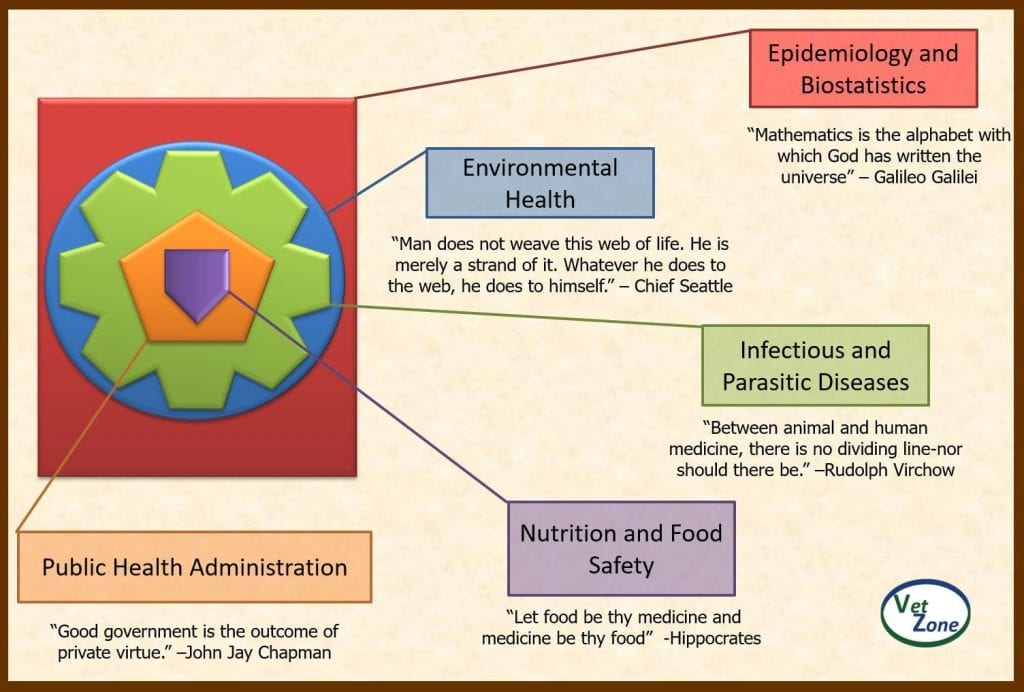What is a veterinary preventive medicine specialist?
When I first heard the term “preventive medicine specialist,” an image of a maternal figure in my kitchen telling me to eat my peas and carrots came to mind, perhaps with a large metal medallion saying, “#1 Mom” on it. Upon the second reflection, I had competing images of a Buddha-figure with herbal recommendations and a zero-body-fat trainer correcting my planking posture in my mind. When I placed the word “veterinary” in front the title, the image became even more obscure and implausible.
So, what is a veterinary preventive medicine specialist? Why would I want to become one? When would I need one?
A medical specialist is a doctor who has completed advanced education and then passed a daunting exam to prove mastery of the area of study. For clinical specialties, like dermatology or cardiology, the advanced training will include a residency program at a medical university. Non-clinical specialties will often have requirements such as advanced degrees; Ph.D. or a master’s degree for example.
Each specialty has a governing organization called a College which determines admission requirements to join and can confer a doctor as a specialist. They approve whether the applicant has met the requirements, provides the examination (called board exams), and monitors the required continuing education to maintain the certification, among other duties. Doctors who have passed the boards have the title of Diplomate of the particular college.
The American College of Veterinary Preventive Medicine (ACVPM) is the oldest specialty in veterinary medicine, having been established in 1950. Despite its age, it could be considered the most misunderstood. One area of confusion is that this specialty spans both human and veterinary medicine.
While most every specialty has extensive depth in one subject, preventive medicine has moderate depth in five subjects with a focus on how they interrelate. Galileo stated that “Mathematics is the alphabet with which God has written the universe.” Thus, Epidemiology and Biostatistics form a foundation for viewing the other topics. The World Health Organization (WHO) defines epidemiology as “the study of the distribution and determinants of health-related states or events (including disease) and the application of this study to the control of diseases and other health problems.”
The Epidemiologic Triangle is the relationship of the host (you), the infectious agent and the environment. Infectious and parasitic diseases and environmental safety make up the next two subjects. With few things having more impact than nutrition on your daily well-being, nutrition and food safety make up the fourth. Finally, laws, rules, and regulations set a framework to protect people and pets. It is essential to understand the background and logistics for public health administration, the final subject.
A preventive medicine specialist will use the knowledge in these five areas to help protect people and other animals from disease risk. Disease risk can be from toxins, natural or man-made dangers, infectious agents, parasites, and general health disorders. While many of the career opportunities for this work lie within the government and military, there are some private sector and university positions.
The role of a Diplomate of the American College of Veterinary Preventive Medicine is rewarding, exciting and ever-evolving. If you have questions about this specialty, steps to obtain it, are preparing for the exam or interested in our speaking availability, please contact us.
Video
Educational videos on parasites
Audio
Download and enjoy a podcast while driving to work.
Written
Read one of our articles
